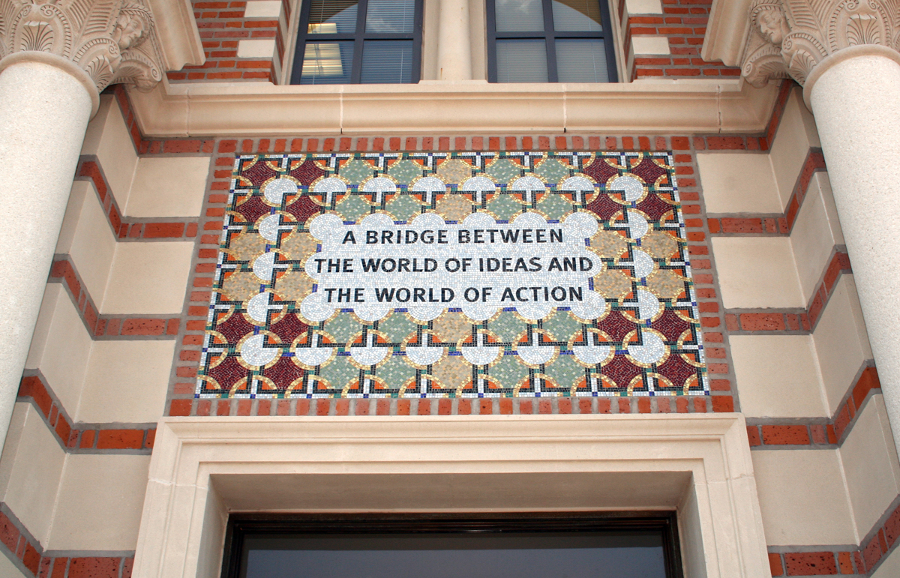To KJD or to not KJD, that is the question.
My original plan was actually to apply to law school after obtaining a master’s degree, in the hopes that it would improve my admission odds. However, upon the impromptu advice of an attorney working at the law firm I was a paralegal at, I applied straight to law school. When I first got into law school, I never imagined I’d defer admission to pursue a professional master’s degree. But that’s exactly what I did—and I’m incredibly glad I did.
It has been 3 years since getting my acceptance and requesting deferral, an elusive but usually perfunctory process. Currently, I’m completing a Master of Global Affairs at Rice University, with plans to start law school at NYU in the fall.
I am writing this blog post in the hopes that folks in similar positions can extract a real-life case for what tangible benefits can be derived from making such a decision (though hopefully it won’t be based on a deferral citation like my own). I hope that by presenting that it was absolutely worth it to wait (even when I had the opportunity to go straight through), you see that there can be serious value-adds to doing it.
Expanding Your Network:
One of the most valuable, yet underappreciated, aspects of taking time before law school is the opportunity to build meaningful connections outside the legal bubble. Through my master’s program, I’ve been able to work closely with policy professionals, researchers, and former diplomats who have shaped my understanding of how the law functions in the real world—across borders and across disciplines.
My network now includes not only future lawyers, but economists, climate analysts, Middle East experts, and people working at the intersection of tech and governance. These relationships have already enriched my worldview and will likely serve as sources of collaboration, mentorship, and perspective throughout my legal career. Law school sharpens your legal thinking, but a professional master’s can expand your orbit.
I’ve also connected with several individuals who have legal backgrounds but are now working in technical or policy-oriented roles outside of traditional legal practice—opening my eyes to long-term career paths I hadn’t previously considered.
Skill Building:
While law school is fantastic at teaching critical thinking, legal writing, and doctrinal analysis, it’s not always the place to develop the practical skills that matter just as much—like communicating across cultures, managing real-world projects, or navigating institutional complexity.
My coursework at Rice included simulations, negotiation exercises, group research, and even policy hackathons—experiences that required me to adapt quickly, think strategically, and collaborate with people from vastly different backgrounds. I’ve learned how to write for policymakers, present findings clearly, and adjust my communication style depending on the audience. These are the kinds of competencies that complement legal training and can set you apart in whatever legal field you enter.
Real-World Experience:
A professional master’s program like Rice’s MGA is designed with policy and practice in mind. In fact, the saying of the Baker Institute, the think tank affiliated with and co-sponsoring my program, is to create a bridge between the world of ideas and the world of action—it’s even engraved on our building.
Through this program, I’ve had the chance to step directly into that space between theory and implementation:
- Research internships at a leading policy think tank: As part of the program, I applied for and was selected as a Graduate Research Intern at the Baker Institute’s Center for the Middle East. There, I’ve explored legal strategies in U.S.-Iran relations and analyzed how international agreements like the Iran Nuclear Deal are approached differently by U.S. and Iranian negotiators. This work has helped me understand the law as a strategic and diplomatic tool—not just a set of formal rules.
- Participation in global conferences: I’ve represented Rice at the Global Negotiation Conference in Zurich and the University Scholars Leadership Symposium at the United Nations in Bangkok. These experiences gave me a front-row seat to the dynamics of international cooperation and deepened my ability to engage in cross-cultural dialogue—skills that will be critical in international legal work.
Clarity of Purpose:
Finally—and perhaps most importantly—this experience has brought me more clarity of purpose. Law school is a massive investment of time, energy, and resources, and I’m grateful I didn’t go in without first understanding what I actually might want to do with the law. Through my master’s, I’ve tested my interests in diplomacy, international law, and technology governance across several domains—whether through drafting memos on arms control, exploring the legal frameworks surrounding AI in military operations, or investigating U.S. strategies in treaty negotiations. While I’m still uncertain about the exact path I’ll take, I know I want it to involve international law in some capacity—and I am much more cognizant of the options I do have at my disposal.
Of course, there’s never a one-size-fits-all answer and everyone’s path is their own to carve out. Not everyone can or should take a detour before law school. And I can't promise that the timing will ever feel perfect. But if you’re on the fence—unsure whether to go straight through to law school or take time for a professional master’s—here’s what I wish I’d heard more clearly before making my decision: stepping off the KJD fast track can give you the clarity and confidence you can use later in your career.
If law school is about learning the law, then this degree was about taking the time to learn why and how I might want to use it.
About the author:
Anna Lucas is a Master of Global Affairs candidate at Rice University, with interests in international law, outer space, and emerging technologies. She got her B.Sc. in Biochemistry and Philosophy from Baylor University in Waco, Texas. She will continue her studies at NYU Law in Fall 2025, pursuing a career in international law. Read more.
Further Reading:
Mental Ruts and the Importance of Hobbies

